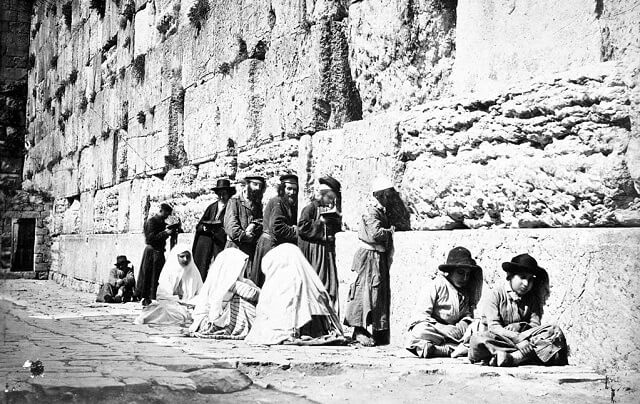
The warnings-rebukes of Bechukotai are harsh. Grim admonitions of war and famine, exile and persecution if the Jewish people will refuse to listen to God and keep the Torah. Yet, in the midst of all the darkness, a ray of light glimmers.
“I will make the land so desolate that [even] your enemies who live there will be astonished. I will scatter you among the nations, and keep the sword drawn against you. Your land will remain desolate, and your cities in ruins.” (Lev. 26:32-33)
The Ramban noted that a remarkable blessing lies hidden among all of these punishments.
“What it says, ‘your enemies who live there will be desolated’ (וְשָׁמְמוּ עָלֶיהָ אֹיְבֵיכֶם הַיֹּשְׁבִים בָּהּ) — this is, in fact, good news. It proclaims that during all of our exiles, our Land does not accept our enemies.
This is an amazing proof and promise to us. For throughout the settled world, you will not find a good and spacious land that was always settled, and yet is devastated to the extent that the Land of Israel is now. Since we left the Land, it has not received any other nation or people. All attempt to settle it, but none succeed.”
When the Ramban arrived in Eretz Yisrael in 1267, he witnessed the Land’s desolation with his own eyes. As he wrote in a letter to his son:
“What can I tell you about the Land? It is much abandoned and greatly desolate. The holier the place, the more profound the destruction. Jerusalem is devastated the most, and the area of Judah more than the Galilee.” 1
“An Inheritance to Israel”
Rav Kook noted that another verse alludes to this special connection between the Land and the Jewish people:
“[God] struck down great nations and slew mighty kings... all the kingdoms of Canaan. And He gave their land as an inheritance, an inheritance to Israel, His people.” (Psalms 135:10-12)
“וְנָתַן אַרְצָם נַחֲלָה — נַחֲלָה לְיִשְׂרָאֵל עַמּוֹ”
Why did the psalmist repeat, “an inheritance, an inheritance to Israel His people”?
This, Rav Kook explained, refers to two great kindnesses. First, God delivered the Land of Israel from the Canaanite nations to the Jewish people. This was not a temporary conquest, but a nachalah, an eternal inheritance.
And what about the second kindness? God imprinted a special character on the Land. Due to its unique holiness, the Land is not suitable for any other nation. It is forever “an inheritance — an inheritance exclusively to Israel, His people.”
As a result of this special connection between the Land and the people, we possess a clear sign to know when Israel’s redemption is at hand. Rabbi Abba in Sanhedrin 98a taught that when the Land of Israel gives its fruit in abundance, that is an overt sign that the end of Israel’s exile draws near. As it says,
“And you, mountains of Israel, will give forth your branches, and bear your fruit to My people of Israel, for they will soon be coming” (Ezek. 36:8)
(Adapted from Olat Re’iyah vol. II p. 83)
1 Kitvei HaRamban 1:368. In 1867, exactly 600 years later, Mark Twain toured the Middle East. The famous American author described the country he saw in his travelogue:
“The further we went the hotter the sun got, and the more rocky and bare, repulsive and dreary the landscape became... There was hardly a tree or a shrub any where. Even the olive and the cactus, those fast friends of a worthless soil, had almost deserted the country. No landscape exists that is more tiresome to the eye than that which bounds the approaches to Jerusalem.” (The Innocents Abroad, p. 555).





